[ad_1]
Every May, we observe a federal holiday to honor those who lost their lives while serving our country. However, we sometimes overlook the meaning behind this day. While we get ready for this three-day weekend, let’s take a few moments to pause and share these Memorial Day facts in the classroom.
The first Memorial Day took place in 1868.
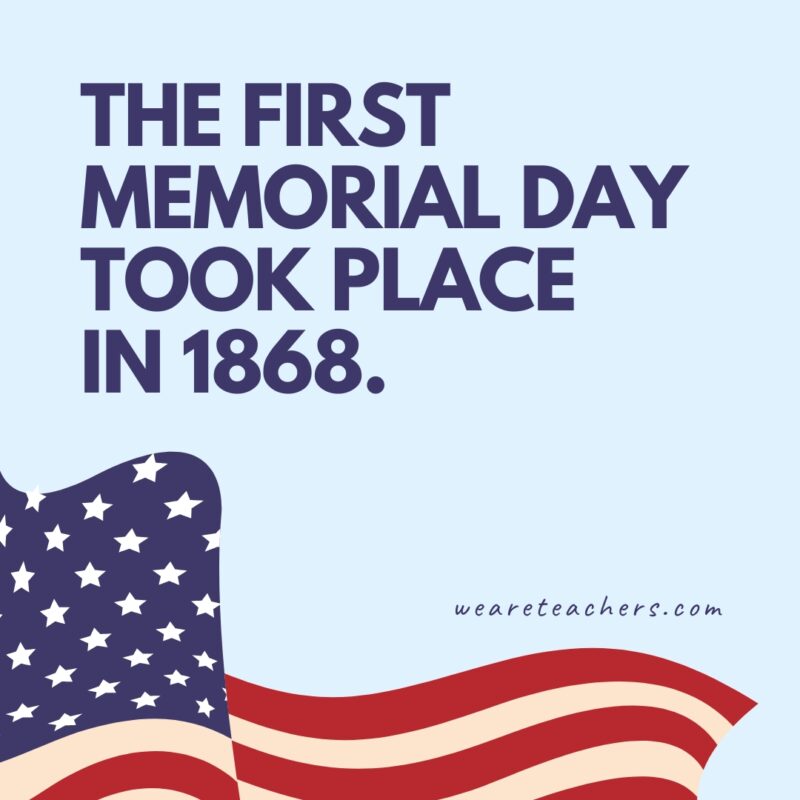
From 1868 to 1970, Memorial Day was celebrated every year on May 30.
Learn more: PBS
Memorial Day was originally called Decoration Day.

Following the end of the Civil War, which claimed more lives than any other conflict in U.S. history, in 1865, the country’s first national cemeteries were established. Springtime tributes were held to honor the fallen soldiers, with many “decorating” the graves with flowers.
Learn more: PBS
An early Memorial Day observance was organized by recently freed African Americans.
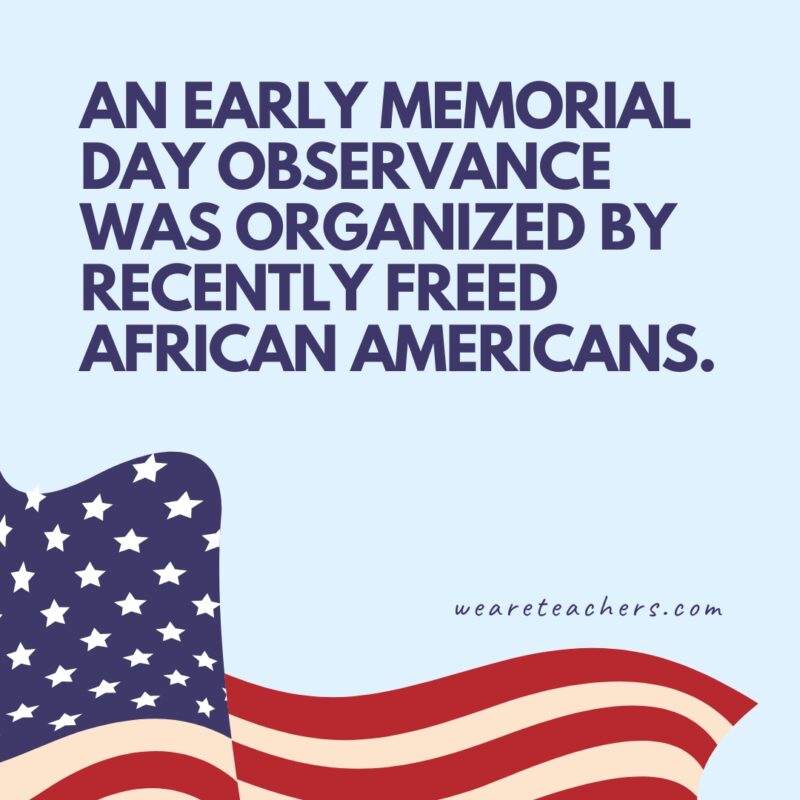
According to some records, one of the first commemorations took place in Charleston, South Carolina, and was organized and attended by more than 1,000 formerly enslaved people. It took place just a few weeks after the Confederate surrender in 1865.
Learn more: History.com
It became known as Memorial Day after World War II.
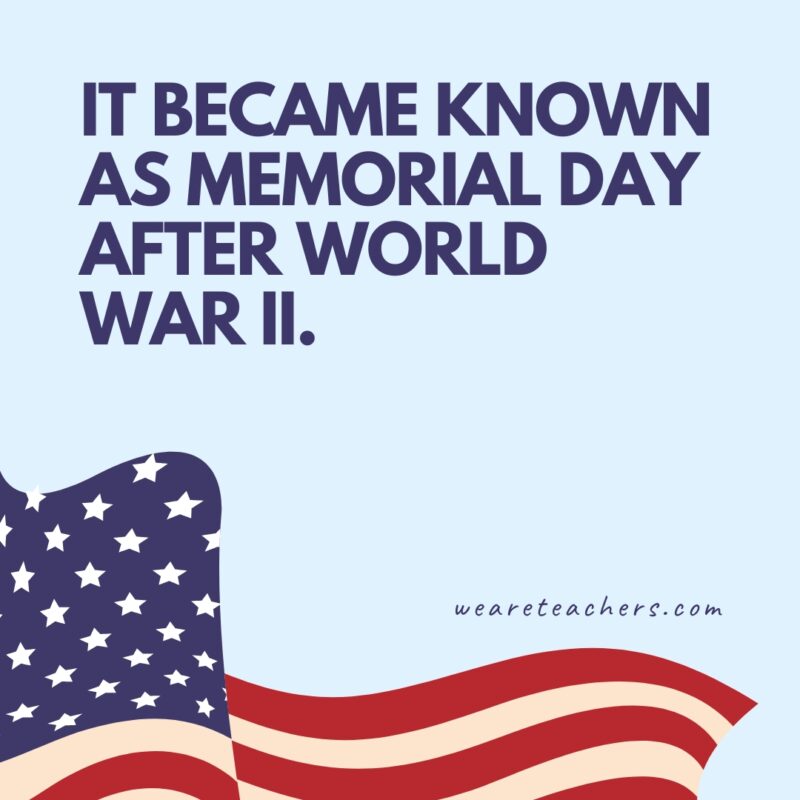
While the name “Memorial Day” became more popular gradually after World War II, it wasn’t made official until 1967.
Learn more: The National Constitution Center
Waterloo, New York, is considered the birthplace of Memorial Day.
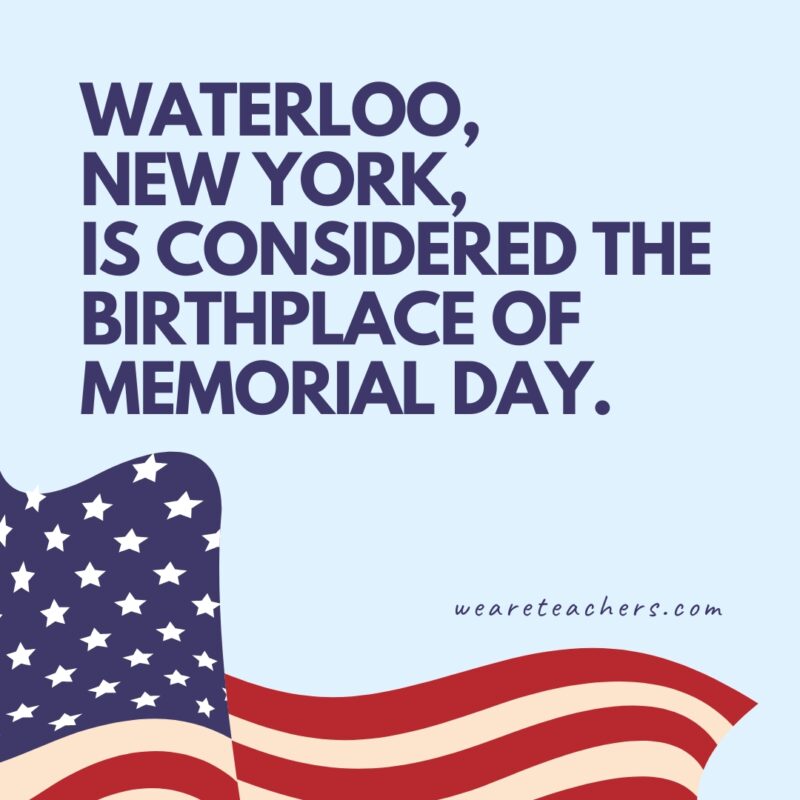
Waterloo was designated “The Birthplace of Memorial Day” on March 7, 1966, in Albany, New York, when Governor Nelson Rockefeller signed a proclamation of designation.
Learn more: Library of Congress
Memorial Day was officially recognized as a federal holiday in 1971.
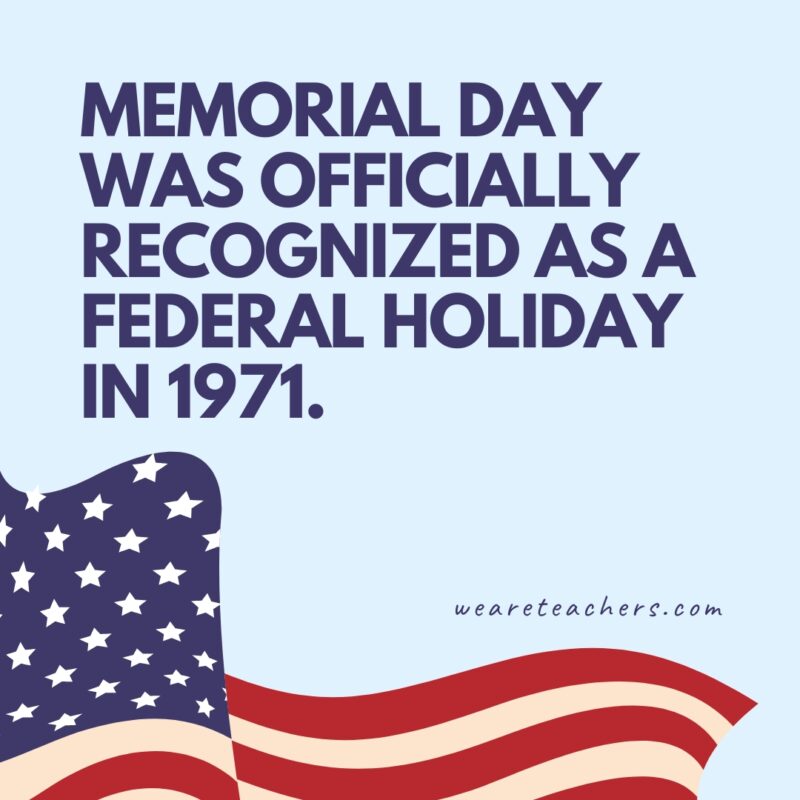
Memorial Day was switched from May 30 to the last Monday in May to create a three-day weekend.
Learn more: Veterans Affairs
Memorial Day is the unofficial start of summer in the United States.

For many people, Memorial Day celebrations with barbecues, picnics, and other outdoor activities kick off the summer season.
Learn more: History.com
The National Moment of Remembrance, which happens on Memorial Day, was established in 2000.
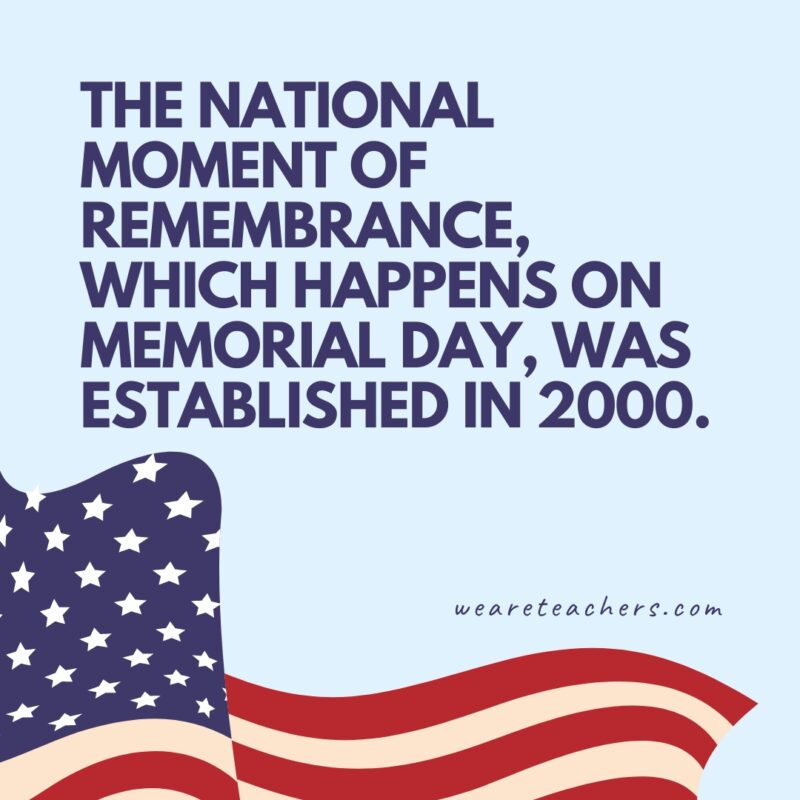
In 2000, Congress passed the National Moment of Remembrance Act, which encourages all Americans to pause for one minute at 3 p.m. on Memorial Day. During this time, we should remember and honor the sacrifices of those who died in service to the nation.
Learn more: National Archives
The flag is flown at half-staff from sunrise until noon on Memorial Day.
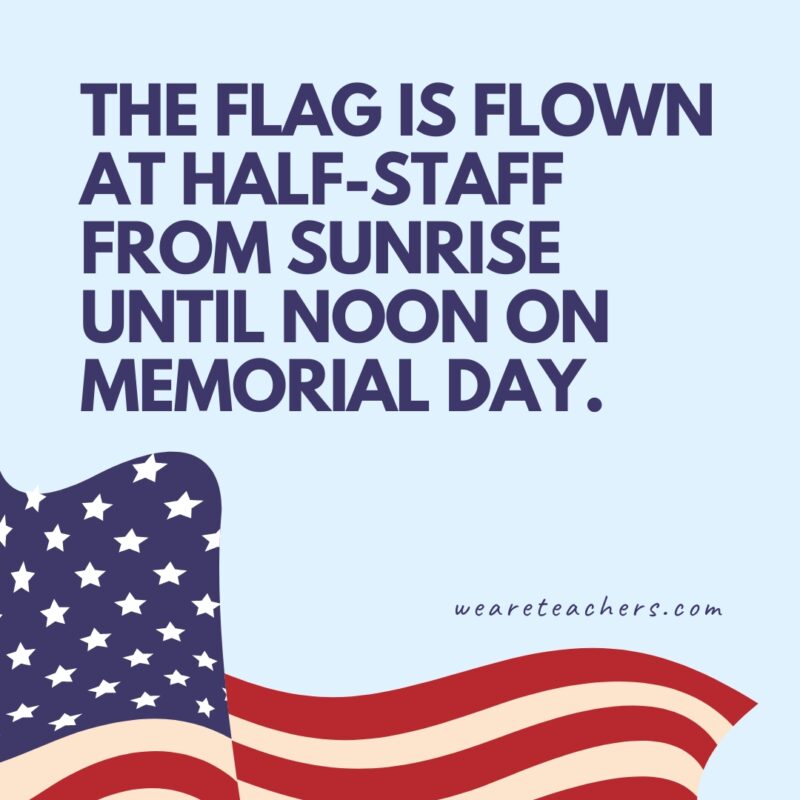
After that, it is raised to full staff for the rest of the day.
Learn more: Veterans Affairs
Many people visit cemeteries on Memorial Day.
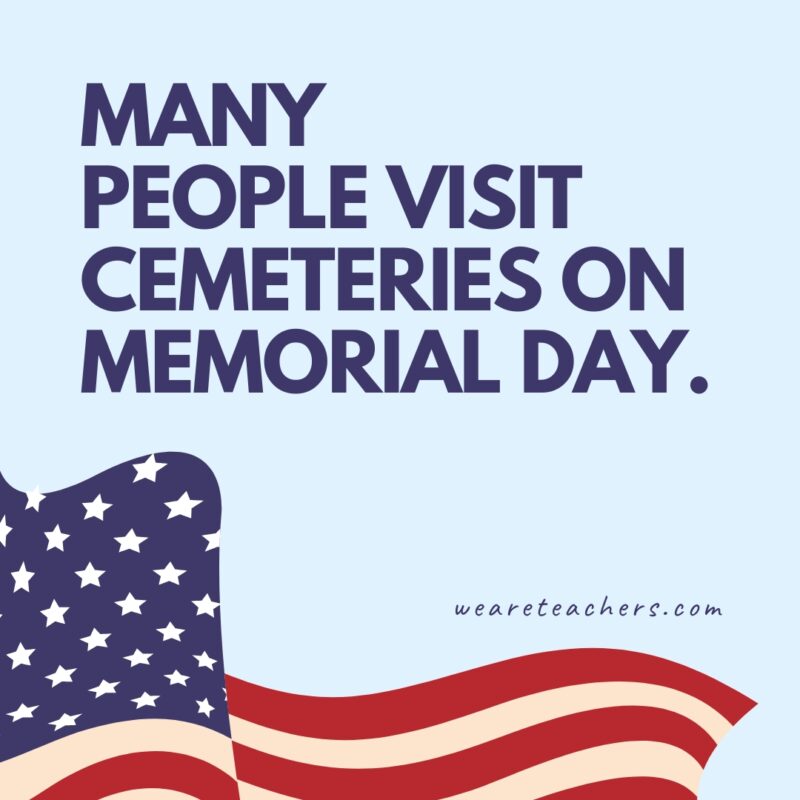
People pay their respects by placing flowers or flags on the graves of loved ones who died in military service to our country.
Learn more: History.com
There’s an annual wreath-laying ceremony at the Tomb of the Unknown Soldier on Memorial Day.
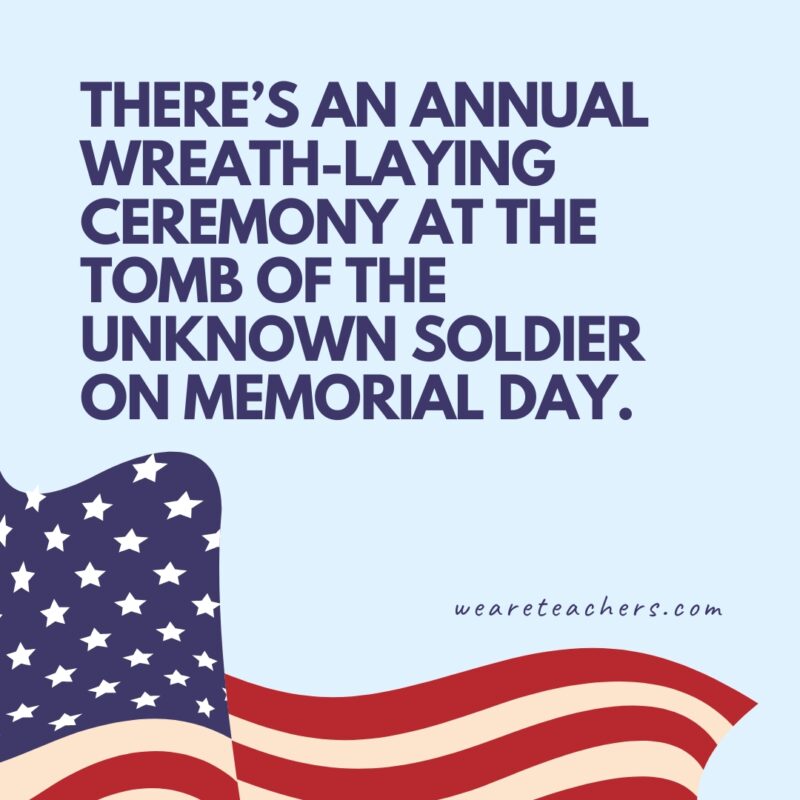
Each year, a formal ceremony takes place at the Tomb of the Unknown Soldier at Arlington National Cemetery in Virginia. During the ceremony, the president of the United States or the president’s designee lays a wreath at the Tomb of the Unknown Soldier to mark Memorial Day.
Learn more: Arlington National Cemetery
Memorial Day and Veterans Day are not the same.
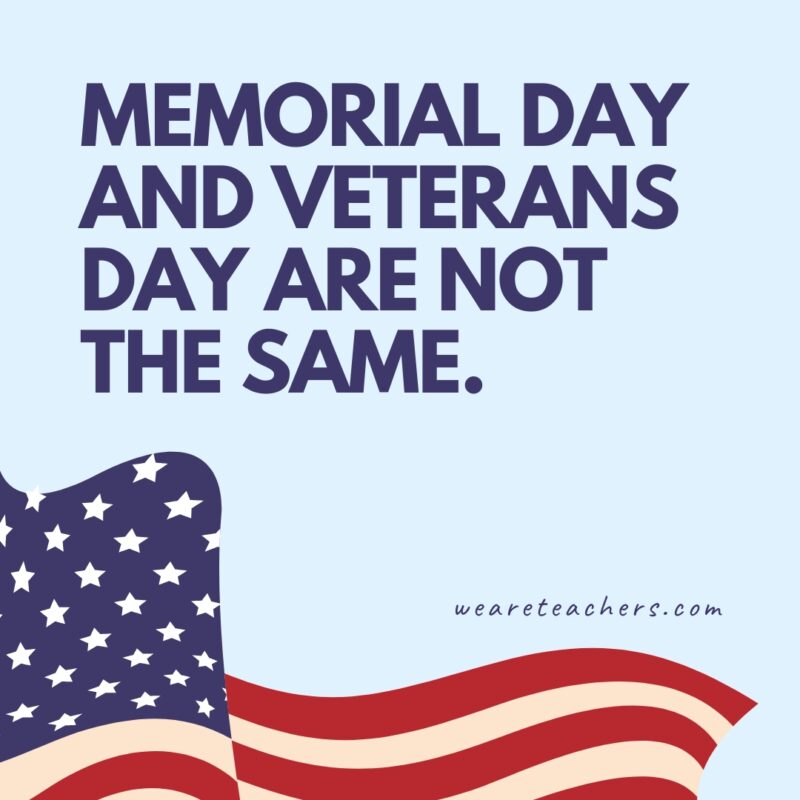
Memorial Day honors those who died while serving their country whereas Veterans Day celebrates all who have served throughout history. Additionally, a third holiday, Armed Forces Day, recognizes those who are currently serving.
Some people wear poppies on Memorial Day.
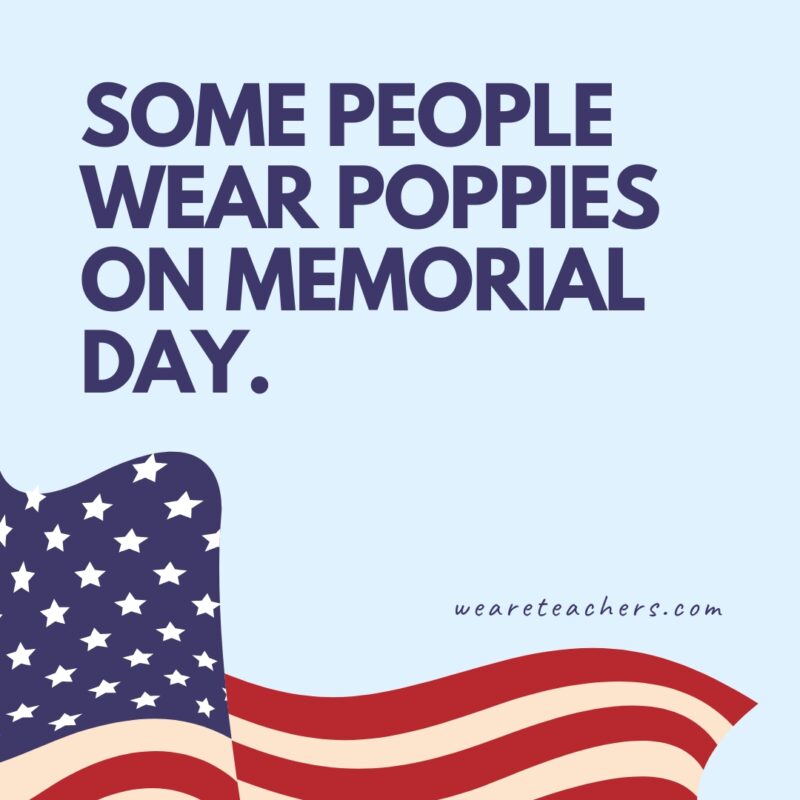
In remembrance of those who lost their lives in war, some Americans wear a poppy on Memorial Day as a show of respect. The tradition is inspired by “In Flanders Fields,” a World War I poem written in 1915 by John McCrae.
Learn more: History.com
More than 1.3 million American service members have died in wars.
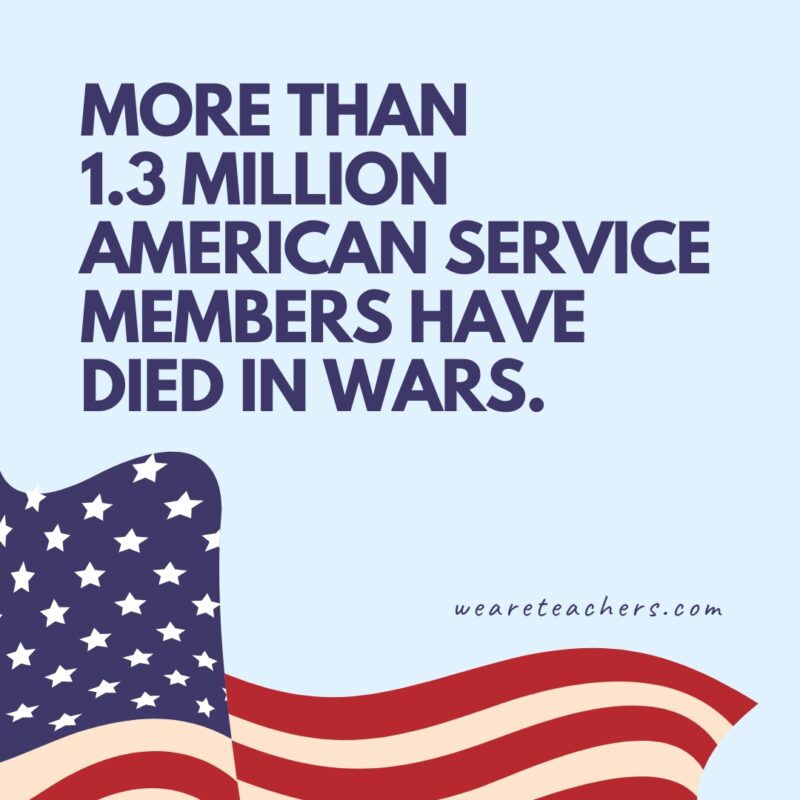
This includes more than 620,000 battlefield deaths in the Civil War alone.
Learn more: National Park Service
Memorial Day is a day of solemn remembrance.

It’s a federal holiday so it’s tempting to say “Happy Memorial Day,” but it’s important to keep in mind that it’s a day of honor and remembrance—not just a day off from work.
Learn more: Readers Digest
Did we miss some Memorial Day facts? Share in the comments below!
Plus, check out these fascinating history facts for kids!
If you liked these Memorial Day facts and want more articles like this, be sure to subscribe to our newsletters to find out when they’re posted.
[ad_2]
Source link
